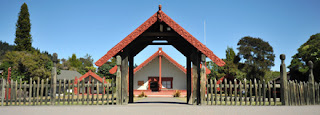Scotland is divided into six whisky-producing regions; Speyside, Lowlands, Highlands, Campbeltown, Islands and Islay. Although each whisky is unique, the malts produced in each region have some common characteristics which separate them from whiskies from other regions. These differences are the result of several factors as for example the use of different raw materials, climate variations and different production techniques.
Islay
Islay is a small island west of the Scottish mainland and is the home of many well-known malt whiskies. Although a few milder versions exits, Islay whisky in general is smoky, peaty and salty and has quite a bit of tang and tar thrown into the mix. The island once had 23 distilleries operating at the same time but the number of active distilleries is now down to eight. Islay is a centre of "whisky tourism", and hosts a "Festival of Malt and Music" known as Fèis Ìle each year at the end of May, with events and tastings celebrating the cultural heritage of the island. The whiskies of the distilleries along the southeastern coast of the island, Laphroaig, Lagavulin, and Ardbeg, have a smoky character derived from peat, considered a central characteristic of the Islay malts, and ascribed both to the water from which the whisky is made and to the peating levels of the barley.Lowlands
As the name suggests, the Lowlands is a flat region without mountains. It is also the southernmost part of Scotland. Whisky from the Lowlands is single malt whisky traditionally triple distilled giving it a smooth and slightly fiery taste. It is also very light in salt, peat and smoke as opposed to many other whiskies. Any Lowland whisky is a fine aperitif.Speyside
Speyside boasting the highest concentration of distilleries in Scotland, is the undisputed center for whisky in Scotland. Speyside is geographically part of the Highlands but is considered a separate region because of its size and the different characteristics of Speyside whisky as opposed to other Highland whisky. The region has received its name from the river Spey which cuts through the area. Many of the distilleries use water straight from the river Spey in their production process. The malt is considered to be refined, sweet and elegant. If you wish to introduce a friend to the world of whisky, a Speyside is a good choice with its rich flavour, complexity and relatively mild character. Highlands
The Highlands is the largest of the whisky producing regions in Scotland. The whisky is often powerful, has a rich flavor and is quite smoky although slightly less so than whisky from the Islands. Compared to the Lowlands, Highland whiskies often taste very different from each other. This is partly due to the size of the region which allows for greater differences in the microclimate, but variations in raw materials and productions techniques also play an important part. The word ‘glen’ is commonly used in the name of both Highland and Speyside distilleries and means ‘valley’.Campbeltown
The region Campbeltown was once a flourishing whisky region and the city of Campbeltown was considered to be the whisky capital of Scotland. In 1886 there were no less than 21 distilleries in and surrounding the city. Today only three distilleries remain. Campbeltown is still referred to as a separate whisky producing region, but today the reason is mostly historical.Islands
It is not uncommon for this region to be confused with Islay but Islands is in fact a separate production region which consists of the islands Mull, Orkney, Jura, Arran, Shetlands and Skye. It is a source of constant debate whether Orkney belongs to the Islands or in fact should be counted as part of the Highlands region. Whisky from the Islands may be described as a milder version of Islay whisky and is often appreciated by those who have enjoyed whisky for a few years. The well-known whisky Talisker is produced on the beautiful Island of Skye. The Blackwood Distillery is the most recent addition to Scotland’s family of distilleries and is currently being built on one of the Shetland Islands.Learn more about Scotch Whisky on your Celtic Tours Whisky Tour of Scotland


































